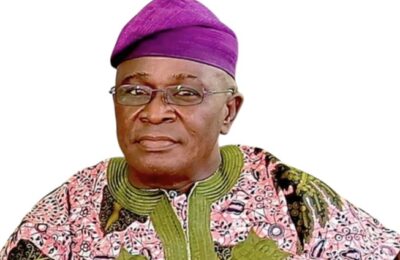During his years as Governor of Kogi State, Alhaji Yahaya Adoza Bello built a reputation as one of the most uncompromising leaders in Nigeria’s fight against violent criminality. At a time when terrorism, banditry, and kidnapping were tightening their grip on many parts of the country, Bello governed with a clarity of purpose that left no room for ambiguity: terrorists had no place, no voice, and no future in Kogi State.
One episode from his tenure, now widely referenced, captures the essence of his stance. At a regional security meeting where some northern officials agreed to sit with bandit leaders, Bello refused point-blank. He did not merely decline participation; he reportedly rose and walked out with his delegation, refusing to grant violent criminals even symbolic legitimacy.
Yet that gesture, firm as it was, paled in comparison to a more direct encounter that demonstrated how seriously he took the threat. During intelligence exchanges involving a notorious terror commander attempting to infiltrate the central corridor, Bello sent a blunt message back through the same channels: “The day you enter Kogi will be your last.”
It was not rhetoric. It was a warning rooted in capacity and backed by action, and communities across the state soon came to understand that their governor was not posturing; he meant every word.
Indeed, Bello consistently matched words with action throughout his time in office. Under his administration, Kogi’s security architecture moved aggressively against criminal elements. Security agencies — empowered by political will rather than hindered by it — raided, dismantled, and demolished terrorist hideouts across the state, from forest patches to mountain corridors to riverine escape routes. He ensured that the “camouflage” sources of livelihood used by criminals — makeshift business fronts, informal hubs — were uprooted and destroyed. This offensive posture made it increasingly difficult for terrorists and bandits to operate or regroup within Kogi’s boundaries.
Such was the effectiveness of Bello’s demolition-and-disruption security model that it has begun influencing contemporary governance beyond Kogi. Today, the current Governor of Edo State has adopted a similar strategy — identifying and demolishing criminal hideouts, safehouses, and illicit structures. The results have been immediate and encouraging, with Edo recording improved security outcomes using an approach Bello championed years earlier. His methods, once seen as radical, are now being validated across state lines as practical and effective.
It was during these years that many residents began to describe their governor as “a terror to terrorists.” And in many respects, he was. His administration denied criminals the oxygen of momentum, the sanctuary of remote enclaves, and the comfort of psychological advantage.
Independent datasets from his tenure reinforce this narrative. ACLED records show that while other states collapsed under severe waves of violence, Kogi maintained relatively low conflict intensity. In 2020, the state recorded 37 incidents and 57 fatalities — a far cry from the devastating figures witnessed in more troubled northern states. These outcomes were particularly significant given Kogi’s strategic vulnerability as the gateway linking the north and south — a prime target for kidnapping syndicates and extremist cells.
Despite early spikes in kidnapping when Bello first assumed office, the state did not fracture. It did not surrender territory. It did not allow insurgents to plant operational flags. Instead, it became a difficult environment for criminals to survive in — a result of deliberate policy, sustained pressure, and an insistence that the state must meet force with lawful force.
This is not to suggest Bello’s administration was beyond criticism; no government is. But on the core question of security — where the lives of citizens are the currency of leadership — his record as governor stands distinct. He governed with a hardline doctrine, a confrontational will, and a readiness to back up every statement with concrete action.
Today, as Nigeria continues to confront evolving security threats, Bello’s experience remains relevant. The country needs individuals who have handled asymmetric threats, who have taken tough decisions under pressure, and who understand the psychology of violent groups. Bello’s eight years in office provide a blueprint of such leadership.
Whether in an advisory role, a national security coordination effort, or a strategic counter-terrorism capacity, his practical experience represents an asset the Federal Government can harness.
Whatever broader debates surround his political career, one truth from his years in Lugard House remains indisputable:
Yahaya Bello was a terror to terrorists and bandits, a governor who matched words with action, and a leader who ensured that Kogi State never became a sanctuary for those who threatened Nigeria’s
– Williams Charles Oluwatoyin writes from Lokoja.




